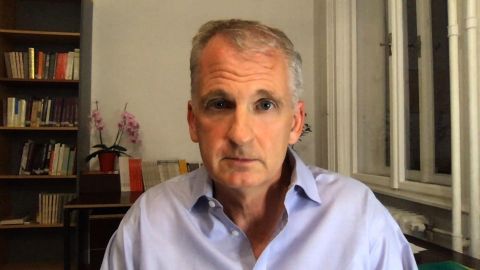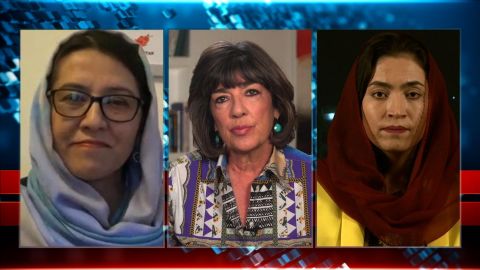Read Transcript EXPAND
CHRISTIANE AMANPOUR: What happens outside Kabul, which is full of internationals, which is much more developed than the rest of the country? How much at risk do you think girls will be if the Taliban come into any kind of political power in the future?
GAISU YARI, COMMISSIONER, AFGHANISTAN’S CIVIL SERVICE COMMISSION: Christiane, this is a very good question to be asked. From the international partners who are — have a commitment to have women in the country, yes. If we’re trying sometimes, in the past, try to victimize women a lot. Especially forced marriage was one of the cases that was more often coming in the international media. So, we did have some development in the past years in terms of forced marriage, raising awareness, sending girls to education. However, I am part of this campaign and we are collecting a lot of stories from the provinces, very poor distance areas that mothers don’t want their daughters to stop school. And then you’re receiving stories from provinces that are under the Taliban control, and they don’t allow their daughters to go to school. For instance, in Ghazni District, which I am from and the (INAUDIBLE), which is about two months ago from 10 districts, there was no woman who graduated from high school to (INAUDIBLE) exam. This is disastrous. For women who have a desire to get an education, this is concerning. However, it is going to be changed with the peace negotiation. What happens when the Taliban come in? But what I believe a lot of women in the country believe is that the current system is benefitting somehow women, and we did have a lot of achievements. We do have — for my job that I’m working in, we do have more than 200 women working in delivery positions in the civil service of Afghanistan across the country, not only in Kabul. So, if we don’t send girls to schools so that they can enter the labor force, and say we send them to forced marriage in the long-term for Afghanistan’s development, it would be very concerning. But I think one point that is very important for the international community to focus is that, that we are not ready to give up. We are not ready to lose the achievement that we have had in the past for almost 20 years now. So, if — yes, we do want peace in the country, but are we going to — with the price of losing women’s rights or the achievements we have had in the past two decades is a great question to think.
About This Episode EXPAND
Christiane speaks with Gaisu Yari and Orzala Nemat about
LEARN MORE


